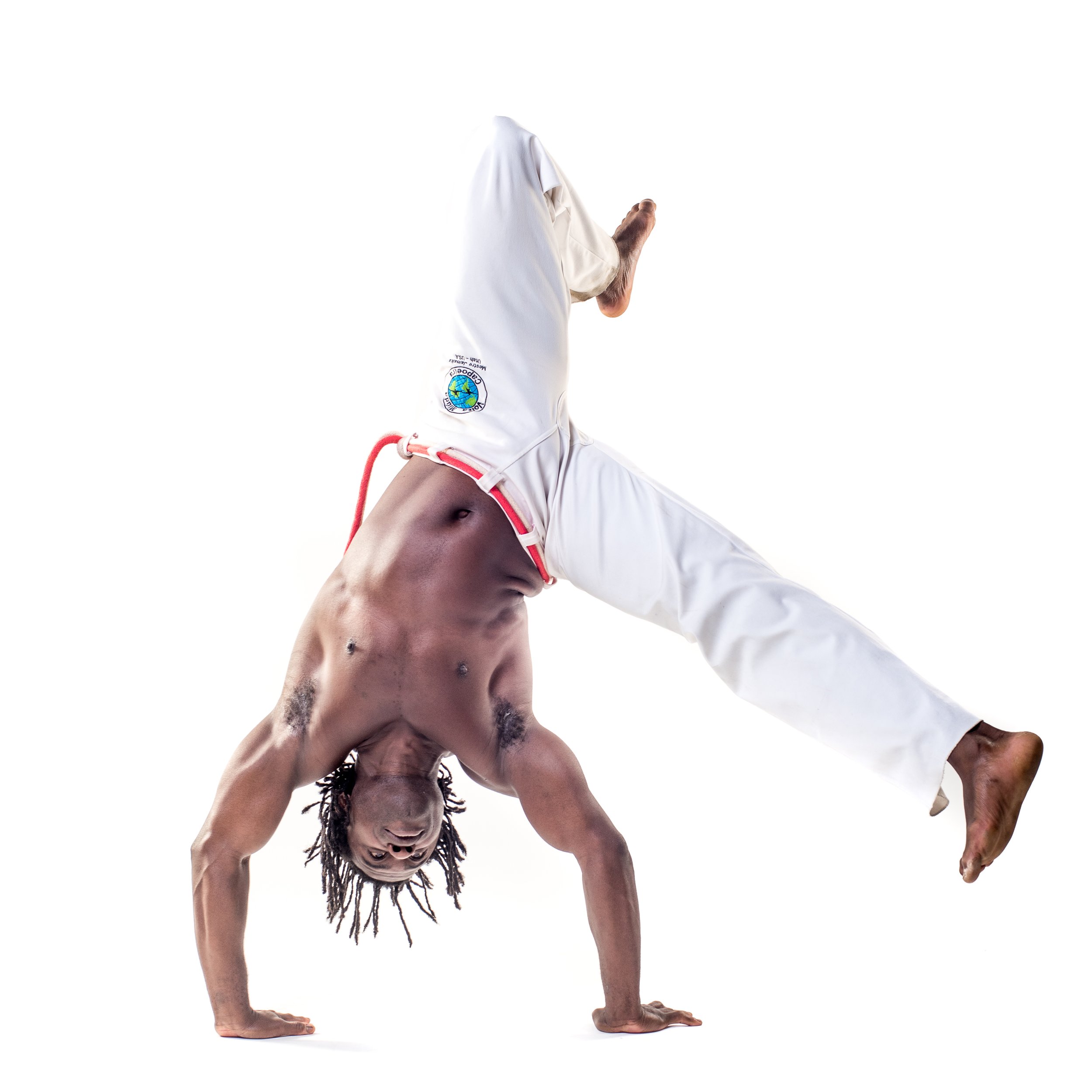Capoeira: The Dance of Freedom (2005 Documentary)
In 2005, Mestre Jamaika took part in Steve Bartholomew’s documentary about capoeira.
This article from Jeff Vice of the Deseret News in 2010 interviews Steve and discuss the film:
Film review: Film project explores Brazilian capoeira dancing
Even Steve Bartholomew is surprised by the "long shelf life" of his graduate school project, "Capoeira: The Dance of Freedom."
The 30-minute documentary was produced on his "own dime" in 2005 and was part of his requirements for graduation from the University of Utah.
However, since then it's been shown at the Gloria International Film Festival, a local event where it took home an award (Best Short Documentary) in 2006.
And in 2008, Bartholomew got to show "The Dance of Freedom" at the Paulinia Film Festival, the second largest film event in Brazil.
As he recalled, "When I saw just how big this festival was, I got sick to my stomach. I was so nervous."
The 33-year-old filmmaker did report that the movie was well-received by audiences there, though he also had a "series of misadventures" that included lost luggage, passport problems and bad timing — his wife was almost due to give birth to their second child at the time.
Capoeira (pronounced COP-oh-EH-rah) is something Bartholomew discovered while serving an LDS mission in Brazil.
This performance artform/activity combines aspects of martial arts training, acrobatics and dance. And it is often performed with the accompaniment of traditional Brazilian instruments, such as the berimbau. The one-stringed instrument looks like a bow and arrow with a small drum attached to it.
For most Americans, capoeira is an oddity. It was seen in joking fashion in the comedy "Meet the Fockers" (2004) and very briefly in the 1944 Disney Donald Duck short "The Three Caballeros."
But for Batholomew, it was "an eye-opening experience."
Capoeira "is just electric, so full of life and energy," he said.
Bartholomew remained fascinated with it even when he returned to the United States. And while he was pursuing a degree in communication at the U., he decided to center his final project on it. That included not only the short, but an accompanying 250-page paper as well.
"I guess I went a little overboard," he said, laughing.
"The Dance of Freedom" not only shows capoeira performances, it also explores its origins — including theories that it was created by Africans who were brought to Brazil by Portuguese slavers.
"It may have begun as a way for the slaves to rebel and to express themselves," he said.
Given its questionable and uncertain roots, capoeira is still treated with a skeptical eye by some Brazilians, which is "really surprising," according to Bartholomew.
His film does note that gaining acceptance in its homeland, though.
See the whole article here.
